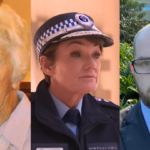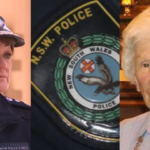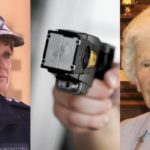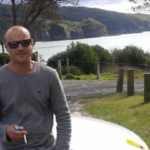Todd McKenzie Inquest Leads NSW Coroner to Join Calls for Mental Health Policing Reform
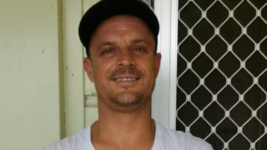
One only has to look back over events of the last 12 months in this state to understand that when NSW police shot Todd McKenzie dead at 10.15 pm on 31 July 2019, as they’d been called out to deal with his mental health episode, the officers’ actions were simply par for the course.
That’s if one applies the old adage “actions speak louder than words”, as, of course, the law doesn’t permit NSW police to kill civilians they’ve been called upon to assist during a psychological crisis, yet, over the last 12 months, five such incidents have likely followed this pattern.
And while all such cases aren’t as clear cut, there was no question Todd McKenzie’s episode was due to his mental health condition, as local officers in the NSW Central Coast town of Taree were familiar with him.
Indeed, an officer actually taunted him in line with this understanding, during the 9-hour siege that took place prior to his killing, and that officer even challenged the man to step outside his house for a fight.
This provocation of a man having a crisis in his house as regular officers were surrounding it and waiting for speciality police to arrive, was just one aspect of the police operation that NSW deputy state coroner Harriett Grahame scrutinized on handing down her 5 April coronial findings.
And the deputy coroner further joined the growing chorus of progressive NSW politicians, law enforcement reformists and legal entities, calling on the state government to not only hold an inquiry to discuss the long-term crisis in policing mental health episodes but also to action reforms.
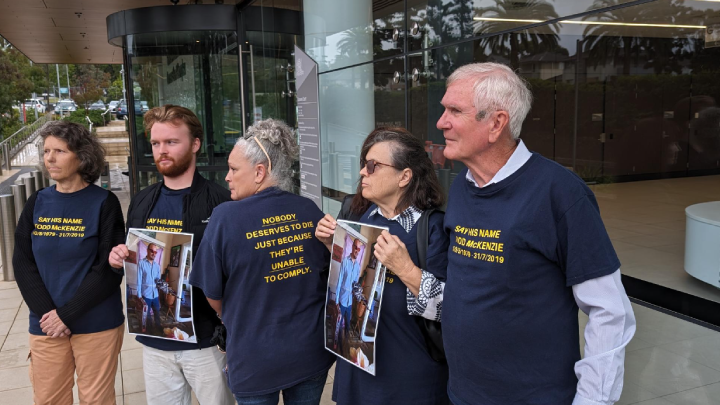
Killing off those with disabilities
“It’s clear from the 200 pages that were handed down today that Todd would most likely be alive if he hadn’t had this interaction with police – if police were not first responders to his mental health crisis,” said National Justice Project chief executive George Newhouse last Friday.
“Todd had a disability. But you heard the coroner say that he lived independently and peacefully in the community,” the lawyer underscored.
“Todd was in the midst of a psychotic episode at the time police smashed his window, smashed his door, and then when he responded, he was fatally shot.”
Newhouse further told reporters out the front of the courthouse following Grahame having handed down her findings, that “instead of seeing Todd as a person with an illness, the police criminalised his disability”.
The lawyer also made clear that it was established, during the inquiry, that police had it in mind to take McKenzie down to the local police station for charging post-siege, if they hadn’t killed him, but they had no thought that the man having a mental health crisis should rather be taken to a hospital.
“That set the scene for what happened later on,” Newhouse made clear. “We must stop criminalising individuals with a disability. They need assistance. Not violence. Not command and control strategies. Those are the strategies that end up killing people.”
Shot down with cameras off
During the inquest that took place over two weeks commencing on 27 March 2023, it was heard that local Taree police officers were called out in the early afternoon to attend to McKenzie, who had been seen walking around outside his home, distraught and carrying a knife.
As officers arrived, a 9-hour standoff commenced with McKenzie locked inside his home, armed with only kitchen utensils, and one of the officers commenced accusing him of “speaking dribble” and lying. He added that Todd was a drain on the country and asked him to step outside to fight.
This behaviour came from an officer in an agency that has dealt with mental health episodes since its inception. And when the five tactical response officers turned up to deal with the unarmed lone man, they told the regular officers to turn off their body-worn cameras in line with their protocol.
Five officers then charged the house of the man that everyone was well aware was having a psychological episode, and, on initially using a stun gun on him to no avail, officers shot the 40-year-old in the back three times.
McKenzie’s parents have pointed out that NSW police failed to call in his local GP to talk him around, which had happened in the past, and they further questioned why tactical officers had stormed the residence when he was posing no real threat.
Coroner Grahame determined Todd’s death to be preventable and she added that police aggravated the situation and neither did they seek the help of professionals or his close-by parents. And she further called for updated training and that tactical police should never turn off their cameras.
Growing calls for reform
“Now, the coroner called today for a summit,” Newhouse continued out the front of the court last Friday. “We strongly take up that recommendation. We have been trying to engage the police minister and the minister for mental health and the attorney general on this issue.”
“We want to see a roundtable where families, disability groups and people with lived experience and sector organisations, sit together with the government and work out a better solution,” he added. “The police don’t want to be carers of last resort. They are not equipped to do it.”
Five civilians having a mental health crises have either been shot or tasered to death by police since last May. And the initial episode grabbed global headlines as an officer tasered a 95-year-old woman with dementia holding a knife, approaching him with the aid of a walking frame.
NSW Greens MLC Sue Higginson has been calling for a parliamentary inquiry into police use of force and weapons since Clare Nowland lost her life in hospital a week later. And the NJP has joined the chorus.
But while the Minns government did determine to put the issue to a committee, it was tagged onto a broader access to mental healthcare inquiry.
Chair of that inquiry, NSW Greens MLC Dr Amanda Cohn told Sydney Criminal Lawyers last year that although NSW police has always been the first responder to mental health crises, alternatives to this approach are already operating in other Australian jurisdictions.
“Mental health is a health issue that critically requires a health response,” said Redfern Legal Centre senior solicitor Samantha Lee last week, as she added her organisation’s voice to the growing list of those calling for the change that circumstances are now begging for.
“We need to find a first responder model that not only keeps the community safe but keeps the person safe who is suffering from a mental health condition,” Lee, who’s head of the RLC police accountability service, said in conclusion.


